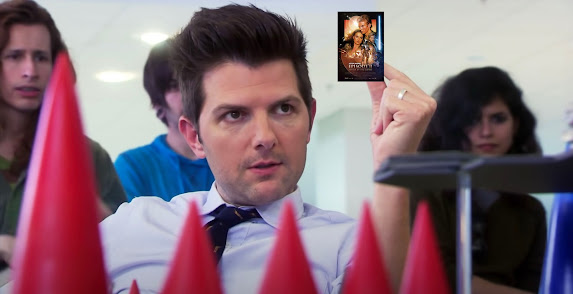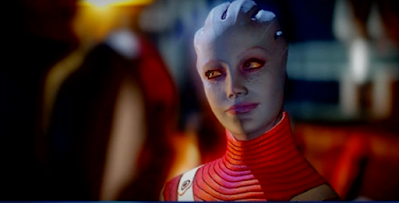Cones of Dunshire: How Big Sci-Fi Franchises Fail
By Ephraim Belnap
"You forgot about the essence of the game. It's about the cones."
This statement by Parks and Recreation’s Ben Wyatt is what goes through my head when looking at franchise failures. Why have Terminator, Star Wars, Alien, Jurassic Park — all classic, world-changing successes — repeatedly failed to make sequels of equal quality time after time after time? Because they misunderstand the nature of the game. The writing — not the directing or the SFX or anything else — that made the successes so darn good. And when we understand that, hopefully we can make something better.
Terminator’s the best example of this because it’s come out with FOUR sequels since 1993 and NONE of them have managed to capture the magic of the first two. That’s because the first two had a strong basis in HORROR — bare bones, primal fear HORROR — but everyone wanted the ACTION aspects, so they made a bunch of films that capitalized on action but missed the human elements lying deeply in horror. Look at the first hour of the first two, and you’ll realize they’re basically horror films until the Terminator’s named.
Alien has got this too, since after its first sequel it also failed to get the magic again. They tried to copy its own popularity instead of the things that MADE it popular! They’d have been better off building off the character where she was instead of undoing her character. But they didn’t. The fact that we keep remaking Alien in different settings (The Thing, 2017’s Life, Dead Space, The Thing again, 2020’s Underwater, The Wake) is a testament to how GOOD it is. We KEEP wanting to make it again, ‘cause the original was SO GOOD!
Jurassic Park is a fun example ‘cause most of its sequels are still well-liked and are enormously financially successful. Most of its juice DOES come from the fact that CGI dinosaurs are frikkin’ cool, and we’ll sign up to watch that everywhere in the world as long as they’re in it. But its critical reception has been increasingly underwhelming in the face of the franchise losing its original message.
The message of the first was that we’ve done the wrong thing to license dinosaurs for profit to marvel at them in theme parks — maybe the seemingly cool thing will also have unexpected consequences. It’s a message that comes from seriously examining its sci-if premise. But none of the sequels explored a similar message with the same gravity - they’ve just been riffing on the same thing to increasingly diminishing returns. The best thing would be making them now a metaphor for nuclear weapons — since the most important part of nuclear weapons is how they AREN’T going back in the bag.
A more recent example is Halo - at least in the main installments after 3. The premise of Halo was at heart, the idea of honor and war that entrances young men. Stepping into Master Chief and the Arbiter’s shoes lets you experience the alleged feelings of the modern military, with Master Chief and Cortana embodying the violence and intelligence of a modern state. The series, while still well-received, has lowered in critical reception because they’ve broken that special formula with Cortana’s change. A better conclusion would’ve been her returning to the fold, but her creations getting out of control, a là modern terrorists slighted by the CIA.
There are probably other franchises that embody this problem, but my gosh, none of them embody this like Star Wars. Ever since the THIRD movie, fans have been arguing what TRUE Star Wars is, and even now, with EIGHT more movies in the mix, the original trilogy is the only thing that’s agreed upon as “true” Star Wars.
The original Star Wars writing was great because it captured the feeling of being a young person trying to enter maturity and confronting their childhood pathos. The Prequel Trilogy would’ve been GREAT if it CENTERED on Anakin’s feelings, played by a charismatic, WELL-DIRECTED actor, showing a Goodfellas-like rise and fall from young man to hero to villain. Instead, Lucasfilm wanted to talk about politics, and Anakin’s scenes get sidelined in the writing process. He has them, but they don’t have the sympathy and sincerity that they captured before. They lost track of what made the movies great.
I suppose it’s easy to be an armchair franchise-runner and point out where all of these people failed, but I think the people behind these things know they messed up a little, and having someone point it out can help everyone ELSE understand how a good product fails, and then we can stop whining about it so much. Feature films are like cars — they’re deeply complex things, and despite all our talk about them, WE can’t make one from scratch almost always. I’m studying to get a degree in filmmaking and I still can’t understand it. But I think talking about this helps me understand, and so it’s not a pointless exercise. It’s just about the game. And the game is about the cones.








Comments
Post a Comment